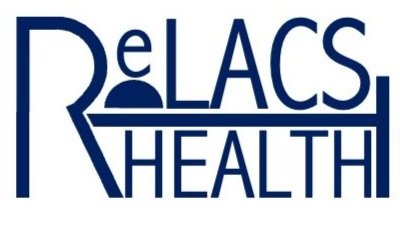Do I Really Need an Overnight Sleep Study (Polysomnogram)?
Did your doctor just tell you that you need a sleep study and have to sleep overnight at a sleep center? Do you really need to do this? @andyberkowskimd of ReLACS Health discusses the medical reasons for having an overnight sleep study (polysomnogram or PSG). For much more detail on the medical reasons for getting--and avoiding--an overnight sleep study, read A ReLACSing Blog:
www.relacshealth.com/blog/do-i-really-need-an-overnight-sleep-study
Unfortunately, in an insurance-based medical system, sleep clinics get most of their reimbursement through performing overnight sleep studies. Naturally, due to the financial incentives--whether subconscious or not--anyone who goes to a sleep clinic is likely to be offered an overnight sleep study, even if the medical reasons for doing so are dubious. This video identifies the real reasons to have a polysomnogram from a medical perspective.
The PSG is a test with lots of wires and tubes to measure brain waves, leg movements, heart function, oxygen levels, eye movements, and breathing. Most sleep studies are done to diagnose the condition obstructive sleep apnea (OSA), which has become very common in the US due to the obesity epidemic. However, home sleep apnea testing (HSAT), which involves a lot less equipment, can be done at home often without going to the sleep center, and is much less expensive, can be used to diagnose the vast majority of patients, thus eliminating the need for a PSG.
Choosing a PSG over home testing is appropriate in the following cases:
- severe heart or lung problems
- those using oxygen
- obesity with BMI greater than 50 kg/m2
- those on full agonist, high-dose opioids (oxycodone, fentanyl, etc.)
- previous borderline or inconclusive HSAT
- to diagnose parasomnias such as sleepwalking or dream enactment (REM sleep behavior disorder). What is REM sleep behavior disorder? Watch this: https://youtu.be/RwnzY41tpB4
A related overnight sleep study can be done to test CPAP (continuous positive airway pressure) or PAP therapy to treat OSA, and this is called a CPAP Titration Study. It has all the wires and tubes of a polysomnogram, but a person with sleep apnea uses a mask and the device settings are tested while they sleep. (See why mask fit is the key to CPAP success: https://youtu.be/5lu5TtyHvNc). The advancement in auto-titrating CPAP devices (APAP or auto CPAP) has made most of these studies obsolete as well. For most of the reasons listed above, an autoPAP unit may not be appropriate without in-center testing first. Additionally, those with significant central sleep apnea, hypoventilation, or persistently low oxygen on a home sleep apnea test should not jump to an automatic device. Some who have a PAP device showing a lot of central apneas or breakthrough breathing events may need more investigation in the sleep lab as well.
Could your central sleep apnea be normal? Watch here:
What are NOT good reasons to have an overnight sleep study:
- It has been several years before the last one and you "need" another one.
- to diagnose or treat insomnia, or difficulty falling asleep and staying asleep
- for diagnosis or treatment of restless legs syndrome (RLS)
Generally, even a polysomnogram that is not all that necessary is not really a harmful test. However, you may incur a significant cost for this if you pay out-of-pocket, have a high deductible plan, have co-insurance on medical expenses, or are part of a health-sharing plan. Additionally, for most, it is a bit of a hassle and provides the inconvenience of a long night away from home. Thus, it is best not do it unless there is a good medical reason.
The goal of this video is to educate those regarding when sleep testing is useful, which is not always clear when the clinic profits so much from the procedure. For those who live in or near Arizona, Michigan, Ohio, or Florida, you can hire @andyberkowskimd of ReLACS Health for consultation regarding whether you in fact need that overnight sleep study. He can address all of your sleep health concerns including sleep apnea as well as all the other sleep conditions that require a little more time and attention and not necessarily a sleep study. Schedule your Comprehensive Consultation.





